- Introduction
- Understanding Grief
- People Grieve Differently
- The Brain Fog of Grief
- The Vocabulary of Grief
- Grievers Don’t Need to be Fixed
- Misconceptions About Grief
- There Are No Orderly and Predictable Stages In Grief
- When Caring People Say Dumb Things When You’re Grieving
- What to Say to Others When You’re Grieving
- The Impact of Who you Lost and How you Lost Them
- Heavy Grief Days
- The Grief Letter
- Ways to Remember Them
- Permissions for Grievers
- Creating Bright Spots in the Midst of Grief
- Why Are Many Grievers Not Comfortable Crying In Front of Others?
- Why Grievers Don’t Need to Be Strong
- Do I Just Need Time to Heal From Grief?
- Why Do Grieving People Get the Message They Shouldn’t Be Sad?
- Is Staying Busy Good for Grief?
- The Isolation of Grief
- Can You Fill the Void Left by the Death of Loved One?
- How Long Does the Pain of Grief Last?
- How Do You Get Over Grief?
- I Don’t Want to Forget My Loved One Who Died
- Relationships Change After Loss
- Why Don’t Friends and Family Understand Your Grief?
- How to Tell Others What You Need in Your Grief
- Grief Can Cause You to Re-evaluate Relationships
- I Lost My Spouse and My Friends
- All the Phases in the Grief Journey
- I’m Grieving and Just Barely Surviving
- Why Do I Feel Like I Am Just Existing in My Grief?
- When Will I Be Ready for Grief Counseling?
- Can You Heal Your Grief?
- Living Again After Losing a Loved One
- How Grief Affects Mental Health
- Grief & Depression
- How Trauma Affects Your Grief
- Co-Dependency and Grief
- Should I take medication for my grief?
- The Uniqueness of Grieving A Suicide
- Suicide Shock: I Can’t Believe They Did It
- Feeling Blame and Shame After a Suicide
- The Abandonment of Suicide
- The Stigma of Suicide
- Interview with widow who lost two husbands by suicide
- Losing Your Husband to Suicide
- What To Do With Your Loved One’s Belongings After They Die
- No Cost Financial Coaching & Planning for Widows: Chris Bentley
- Hope When Shattered By Grief
- Answers to Your Questions About Grief
- Introduction
- Is Being Angry at God a Sin After My Loved One Died?
- Where Did My Peace, Joy and Gratitude Go after I lost my loved one?
- Can Grief and Hope Co-Exist?
- Why Does God Heal Some People But Not Others?
- Is Suicide an Unforgivable Sin?
- Why Do I Dislike Platitudes and Bible Verses?
- Why Did God Let My Loved One Die?
Questions Grieving Christians Ask
8 Episodes
All Series
-
Foundations Of Grief
14 Episodes -
Misconceptions About Grief
12 Episodes -
Relationships After Loss
5 Episodes -
The Grief Journey
6 Episodes -
Grief & Mental Health
5 Episodes -
Grieving A Suicide
6 Episodes -
Conversations On Grief
4 Episodes -
Grief Talks
1 Episodes -
Questions Grieving Christians Ask
8 Episodes
Questions Grieving Christians Ask
8 Episodes
Episodes in This Series
-
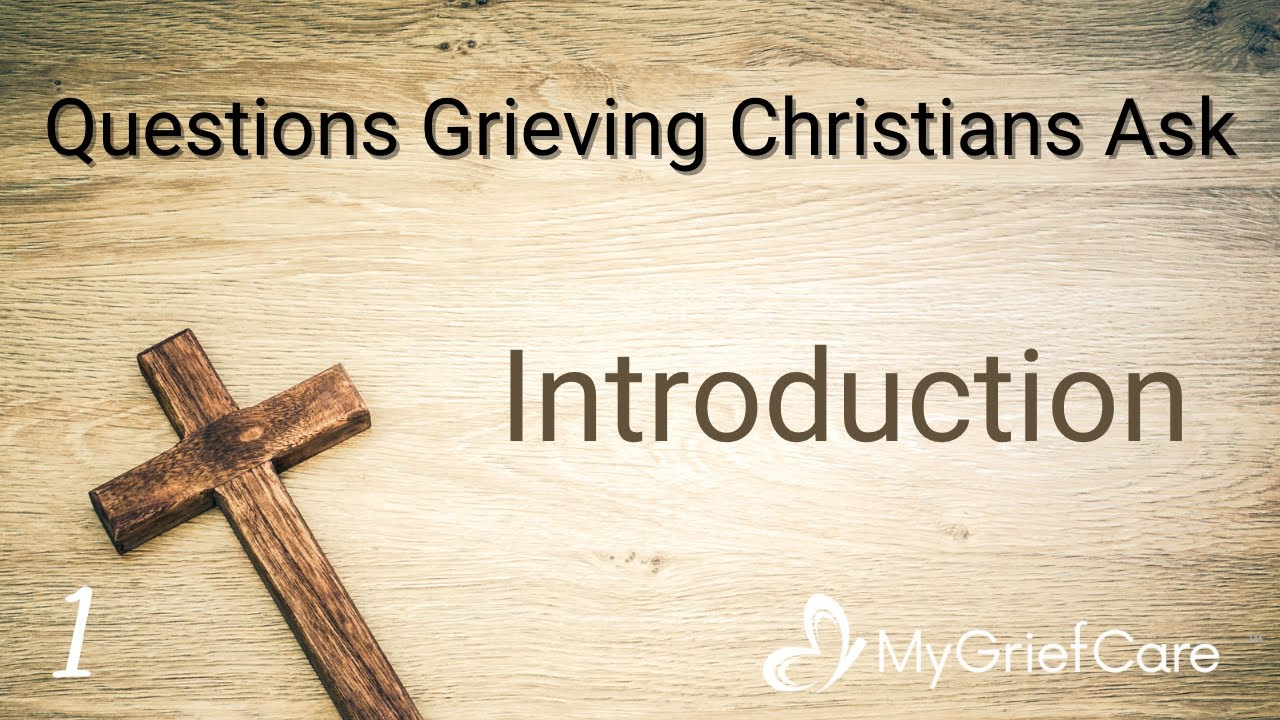
Introduction
-
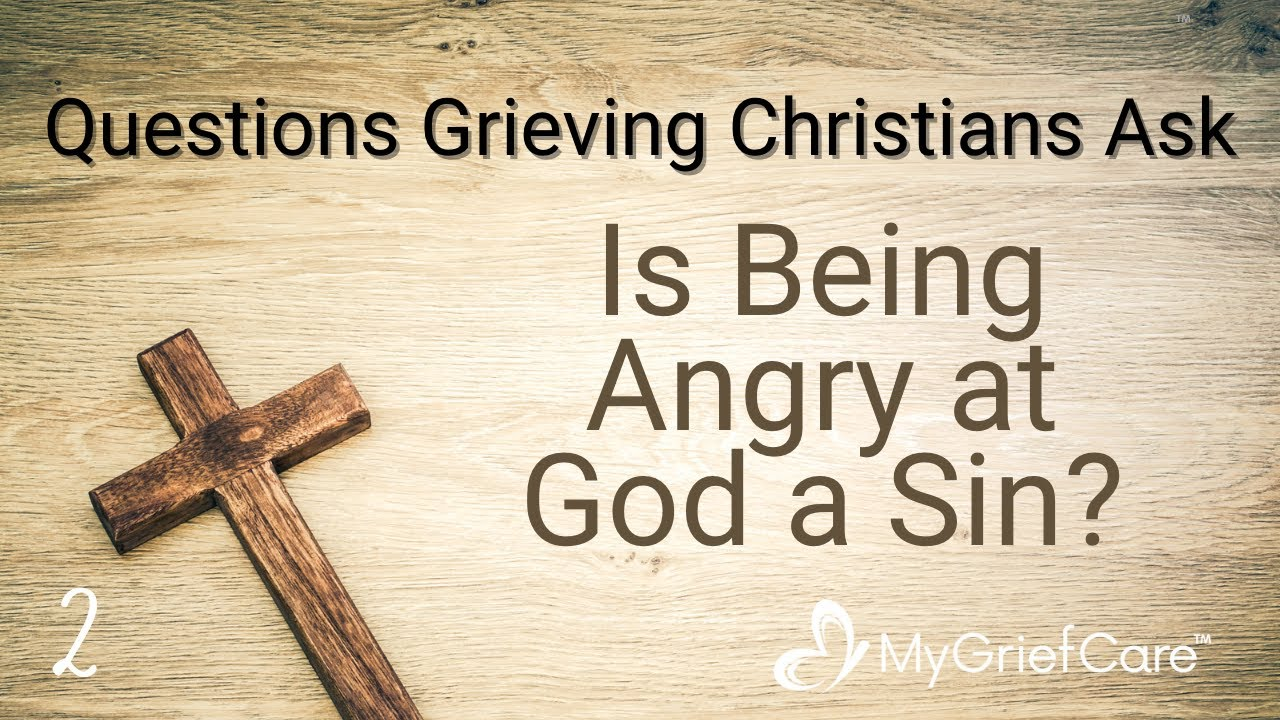
Is Being Angry at God a Sin After My Loved One Died?
-
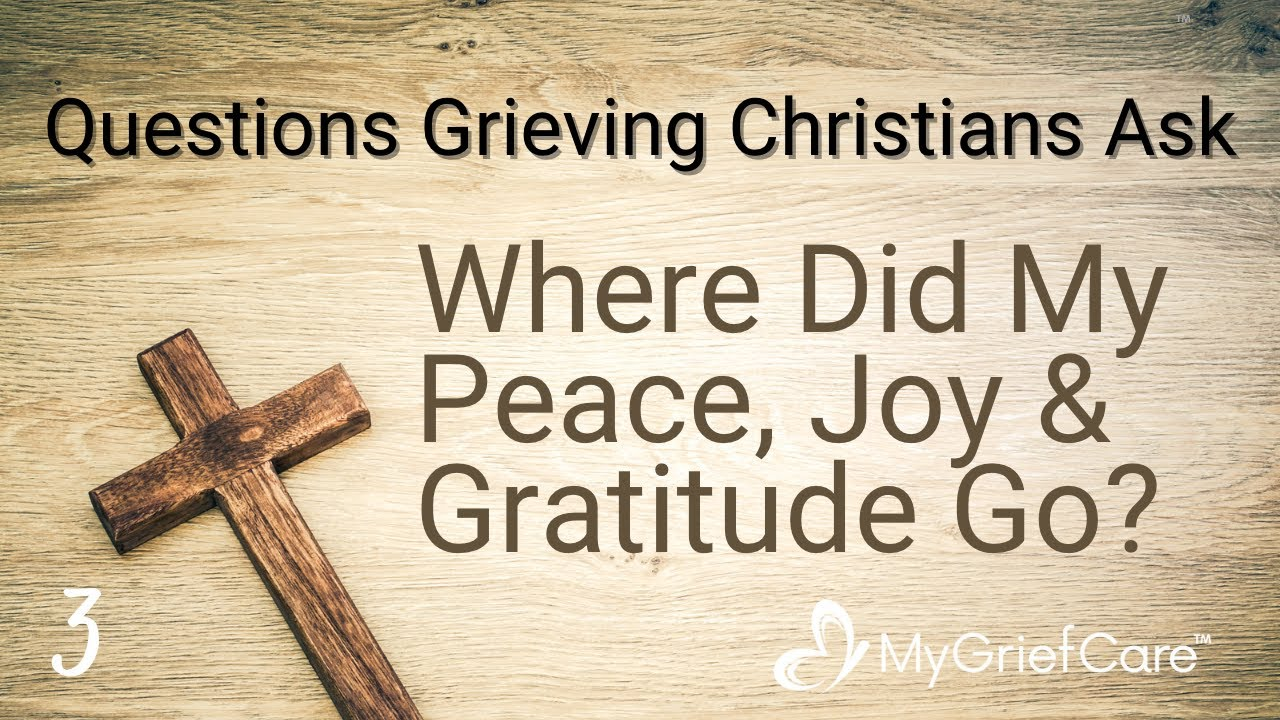
Where Did My Peace, Joy and Gratitude Go after I lost my loved one?
-
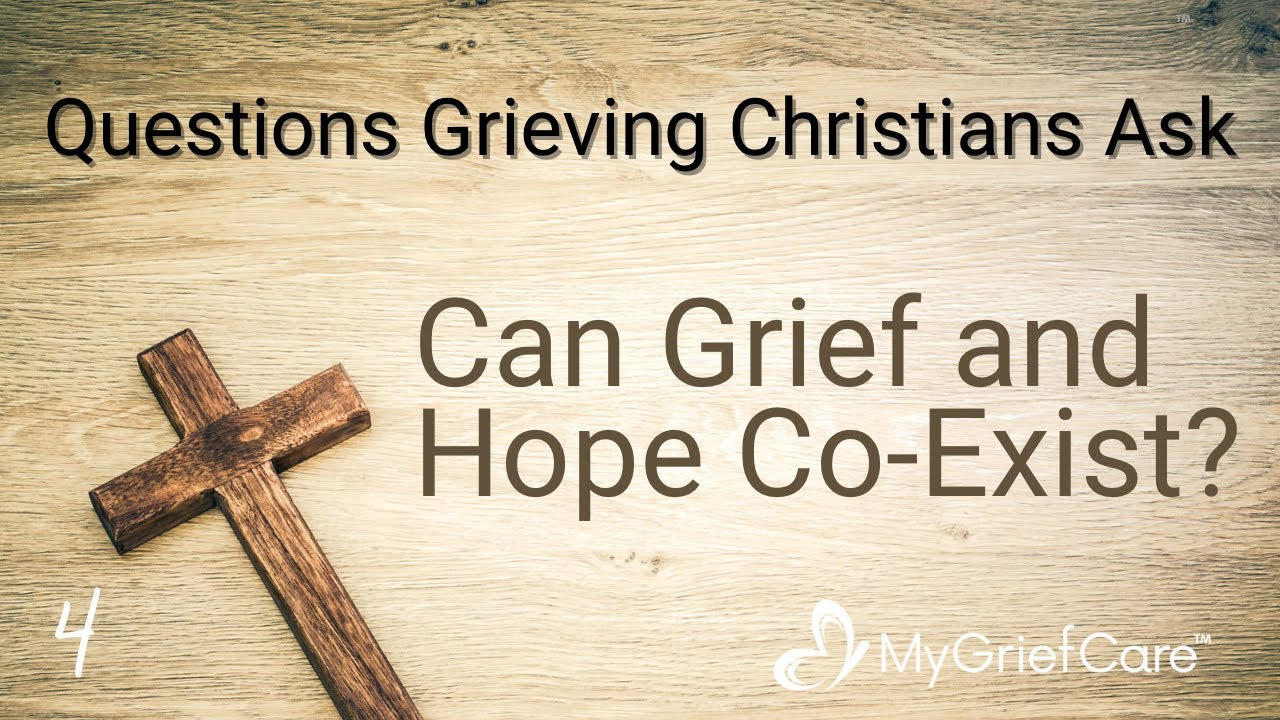
Can Grief and Hope Co-Exist?
-
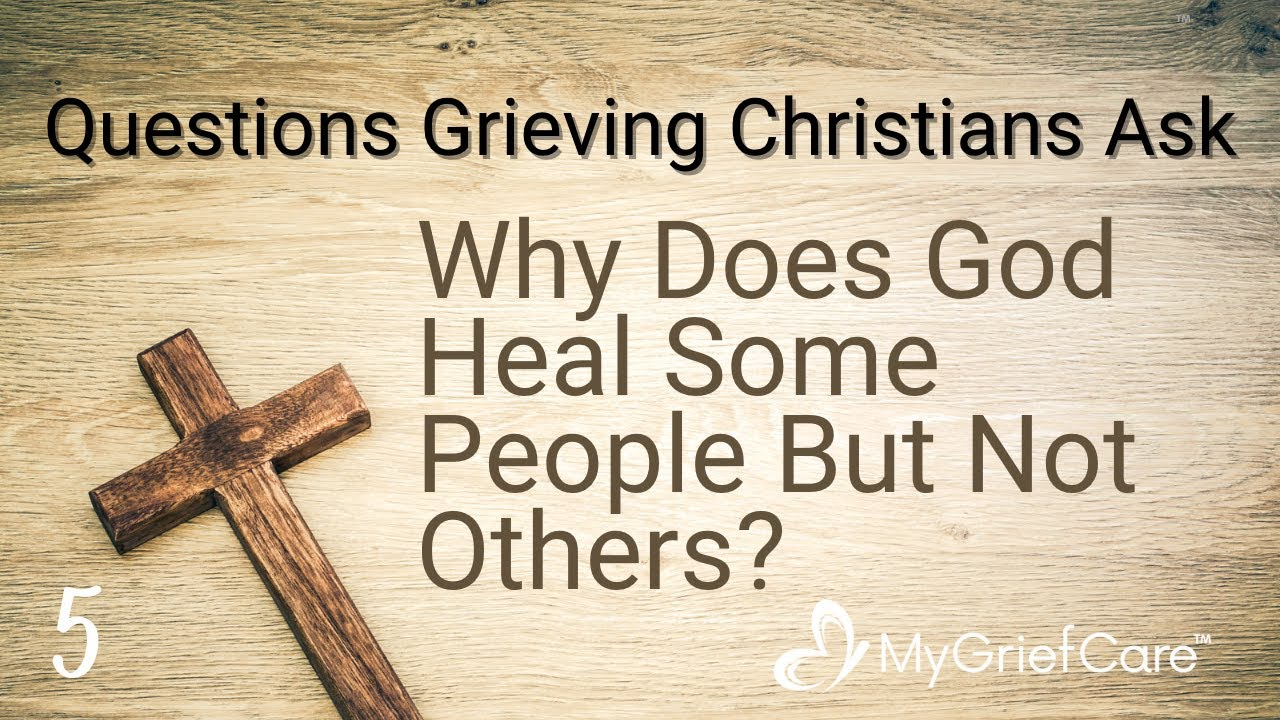
Why Does God Heal Some People But Not Others?
-
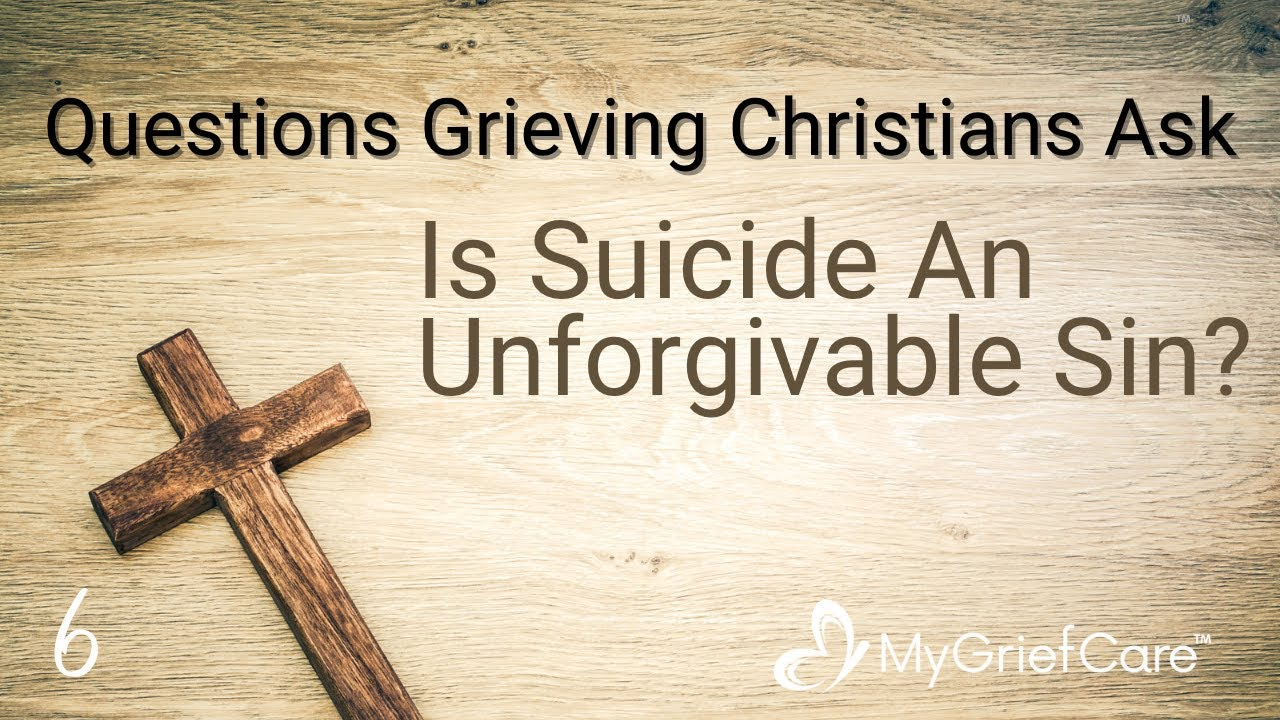
Is Suicide an Unforgivable Sin?
-
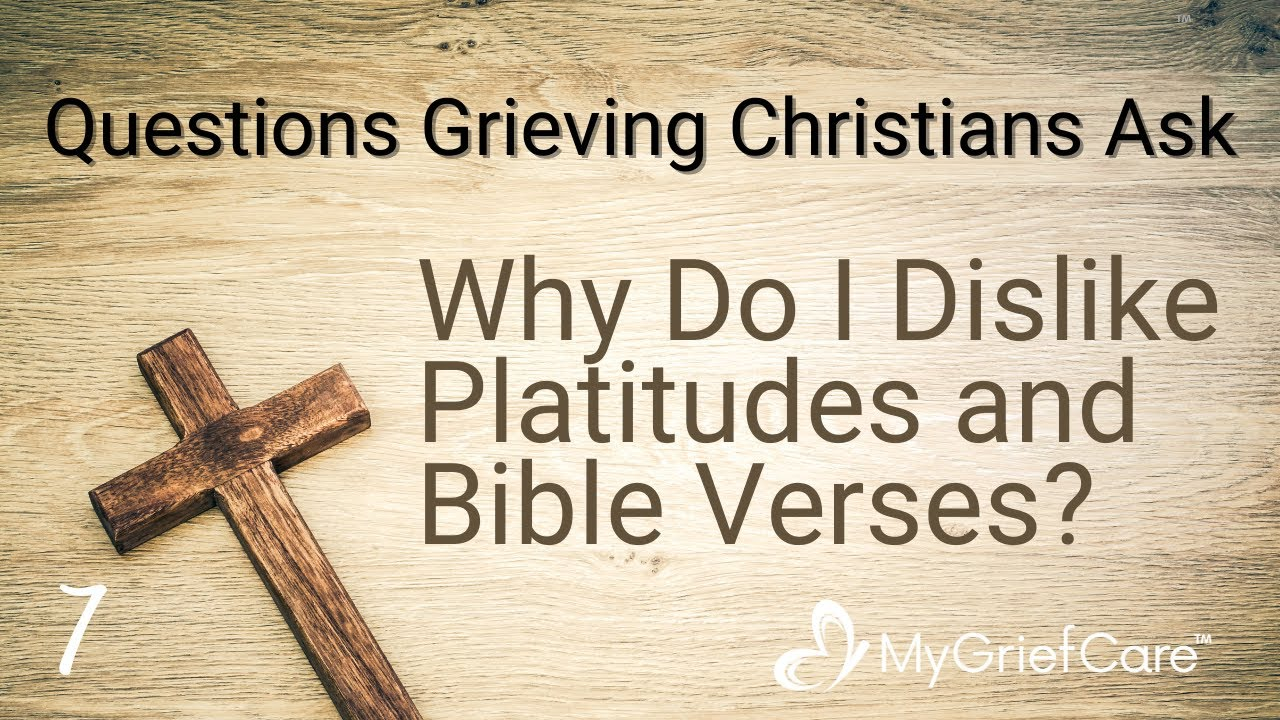
Why Do I Dislike Platitudes and Bible Verses?
-
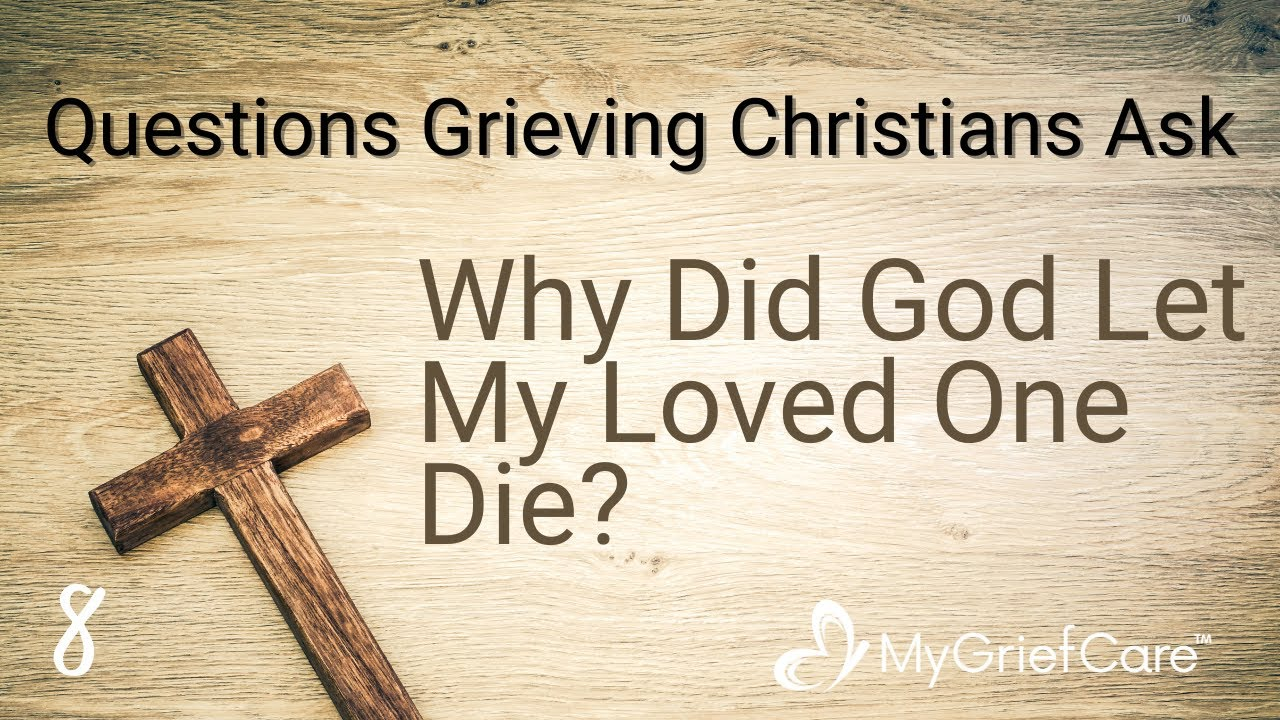
Why Did God Let My Loved One Die?
Episode 7 : Why Do I Dislike Platitudes and Bible Verses?
Downloads
Episode NotesWhy Do I Dislike Platitudes and Bible Verses?
Why do I sometimes dislike hearing platitudes and bible verses after my loved one died? This is a great question, and, of course, it does NOT represent how every person feels after losing a loved one. While the grief experience differs for everyone, I have a few thoughts to share that may help you make sense of your emotional reactions.
First, when someone shares a platitude like “God needed another angel” or “At least he’s in a better place now!” or quotes a bible verse such as James 1:2, “Consider it all joy, when you encounter trials”, you WILL REACT. You might like hearing it, hate it, or simply not care. All these reactions are reasonable. But I’m focusing on those who don’t like hearing such well-intended offerings from family or friends. And, I’m especially speaking to you if you dislike hearing these sayings and you’re not sure why or feel guilty.
There are many reasons you may be reacting negatively. First, many people don’t want unsolicited advice. And shallow sayings don’t address your deep emotional pain in a productive way. These messages just remind you of your pain by giving your wounds a good poke.
And, frankly, some platitudes are just pure nonsense. They don’t even make sense. God does not need another angel. And, if he did, he’d create one. He would not cause a human being to die for that purpose. I remember thinking,but not saying, “I wish he had chosen you instead of my loved one. You’d be a terrific angel.”
One widow shared the following when told her husband was now in a better place. She responded, “No, he’d be in a better place if he were alive and standing here with me right now. THAT would be a better place.” I suppose she didn’t hear that thought twice from the same person.
While true, bible verses may not apply to your circumstances – like “count it all joy, brothers and sisters, when you encounter trials.” Certainly, losing a dear loved one IS a huge trial. But are you really supposed to count your loss as joy? No. The Bible tells us there are seasons for everything in life “a time to mourn and a time to dance.” Those are two opposing seasons – they are different seasons. Right now, you need a big helping of comfort and time to mourn. You aren’t in the mood for joy right now. That’ll come with time.
Hearing even an appropriate biblical reference for a loss can be mistimed. You may not have ears for it. And, your heart may not be ready for it. But, you will eventually get there. And you may be able to smile at a future time. You’ll know when that time comes.
So, until that time comes, what are you to do when presented with off-putting statements and quotes? First, you can respond directly by saying, “I’m sure you mean well, but I’m just in too much pain to hear that right now.” That approach usually works splendidly, and you’ll feel better for speaking up for yourself.
Second, for those closest to you, you can write notes or send a group email and tell people in advance explaining what you need and don’t need. You can be as kind as you wish. But, the idea is to share in advance what you need right now and what you don’t need right now, which might include: more patience, more time to myself, and understanding when you want to talk about your loss and when you don’t. You can say, “I don’t need to be fixed, and, besides, you can’t fix me anyway. I’ll let you know if I’m looking for wisdom.”

